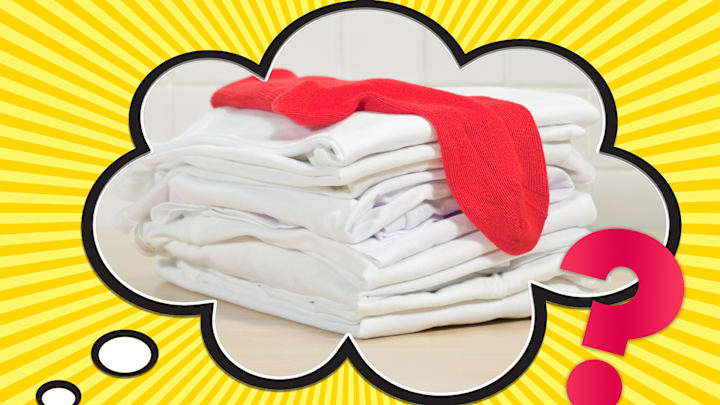We’ve all seen the classic sitcom bit—someone washes their crisp white garments with a stray red sock and winds up with a basket full of clothes that are some awful shade of bubblegum pink. They clearly goofed and forgot to separate their laundry thoroughly.
But does this trope hold up in our modern era? Here’s what to know if you’re unsure about whether you actually need to bother separating your clothes when washing them or how you should go about sorting them in the first place.
There’s a distinct generational gap between laundry doers. While our parents and grandparents may have been diligent about the chore, there’s a much more laissez-faire approach to washing clothes these days. And there’s a simple reason younger generations are no longer so strict about washing dark with dark and light with light.
Sorting your clothes before you wash them still has some benefits, but according to Lifehacker, the need to do this extra step has decreased with the rise of fast fashion and synthetic fabrics. Synthetic materials are generally less prone to bleeding out dye and color than natural fibers—though they hold up much poorer in the long run. Fast fashion also means clothes are cheaper than they’ve been throughout history; as a result, people are less concerned about preserving their wardrobes for years to come.
Detergents have also upgraded their formulas quite a bit, giving way to much better color protection without much assistance on your part. Using cold water to do laundry also helps reduce the chances of any color bleeds.
How to Separate Laundry
Now, while it’s become a lot less common to sort your clothes before tossing them in the wash, there are still instances where it’s fairly necessary. Don’t cut corners and wash your towels and dirty clothes simultaneously; the difference in weight and material will affect how well they get cleaned and dry. You should also separate your workout gear from your everyday outfits—the material for athletic apparel might be water-resistant and could require a different kind of detergent.
Leave your latest vintage find out of the load, too, as older pieces might need a more gentle setting (and may even need to be hand-washed). And if you have any undergarments with silk or lace, you should throw those in their own load to make sure they don’t snag on other items.
When in doubt, read the label to determine a piece of clothing’s washing and drying instructions. And make sure you know not just how to wash your clothes, but also how often.
Read More About Laundry:
Have you got a Big Question you'd like us to answer? If so, let us know by emailing us at bigquestions@mentalfloss.com.
